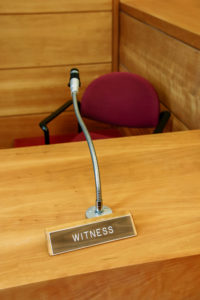The Biased Judge: Divorce and Custody Drama
A biased judge can ruin your chances of success in your case. If you’re taking your divorce case to trial, chances are you’re going to a “bench trial.” A bench trial is a trial before a judge only and not a jury. And, if you’re going to trial, it means you haven’t been successful at settling your case. It also means that you’re letting a busy person who doesn’t know you decide your future.
Most judges are great people. They know and respect the law, try to be fair and impartial, and keep in mind that the people in their courtroom aren’t there by choice. They remember that they are elected officials who are accountable to their constituents. But, sometimes you get a biased judge … or a judge having a really bad day. Either way, it doesn’t really matter which if you get a bad result in your case. You may leave court with the distinct impression that judge doesn’t like you, has it in for you, or hates your lawyer.
So, what can you do? You have a few different strategies to consider:
Your Options with a Biased Judge:
- Change the judge’s mind about you. Is there a way you can rehabilitate the judge’s negative impression of you? If you’re in the middle of your case, this may be an option.
- Avoid that judge. Most often, that means maneuvering your case into a position where you can negotiate a settlement you can live with.
- Evaluate your current legal representation. Does your current lawyer know this judge and her tendencies in trial? Does the judge seem to distrust your lawyer or treat him/her differently than your opponent’s lawyer?
- Press on and pray for a miracle. Maybe things will change? (Please, don’t do this.)
- Legal gymnastics. This is our favorite solution. Legal gymnastics is about making the law work for you. It’s about finding the exception to the rule or the mistake in the proceeding that can help you get your case turned around.
Trying to get around a bad trial result is risky business. You risk making your situation even worse than it already is. Unfortunately, sometimes you don’t have any better options.

